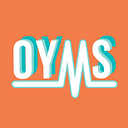Access to Healthcare: Language Barriers
One thing Canada is known for is its cultural diversity. Canada is home to people from around the world, housing a variety of perspectives, values, and beliefs. However, with one of the highest immigration rates in the world, Canada’s healthcare system is faced with language barriers that pose many challenges to access of care.
For those who are not fluent in the official languages of Canada (French and English), the language barriers pose a challenge to understanding and communication, which is instrumental in every step of providing care, including diagnosis, treatment, and follow-up. Challenges in communicating can also lead to misinterpretations that present ethical issues concerning informed consent. Moreover, the practical challenge due to a lack of a shared method of communication and misinterpretations is not the only issue. Patients may feel more reluctant to seek care in the first place due to the distance caused by the inability to communicate and their unfamiliarity with the Canadian healthcare system, having had potentially very different cultural experiences, beliefs, values, and practices about medical care. Other effects include a lack of participation from those who experience language barriers in health research, leading to findings that are not representative of these populations. Communication barriers can also result in longer workdays and higher stress levels in healthcare providers.
Providing interpretation services is one way to tackle this issue. Many aspects need to be considered in terms of interpretation services, including the privacy of the patient’s medical information and legal implications. In addition, a family member, volunteer, or a trained staff member may all have the ability to interpret for a patient, but it is important to consider the training of the interpreter, specifically regarding healthcare interpretation services that often involve individualized, case-by-case situations. While interpreters can be a great solution to breaking language barriers and providing better access to care, there must be a competency and ethical standard that can be assessed when it comes to a topic as complicated as human health. In addition, increasing the number of multilingual healthcare professionals and, on the other hand, providing better access to education and resources through which new immigrants can learn English or French are ways to work towards fewer language barriers. Overall, there is no simple way to eliminate the challenges of language barriers. However, with the rapidly developing field of technology, perhaps better solutions will come. Soon enough, with the combined efforts of medical professionals, linguists, engineers, computer scientists, and researchers, we may be able to create technology that can act as a reliable intermediate for the patient and the provider to communicate through.
Sources:
Author: Selina Liu
